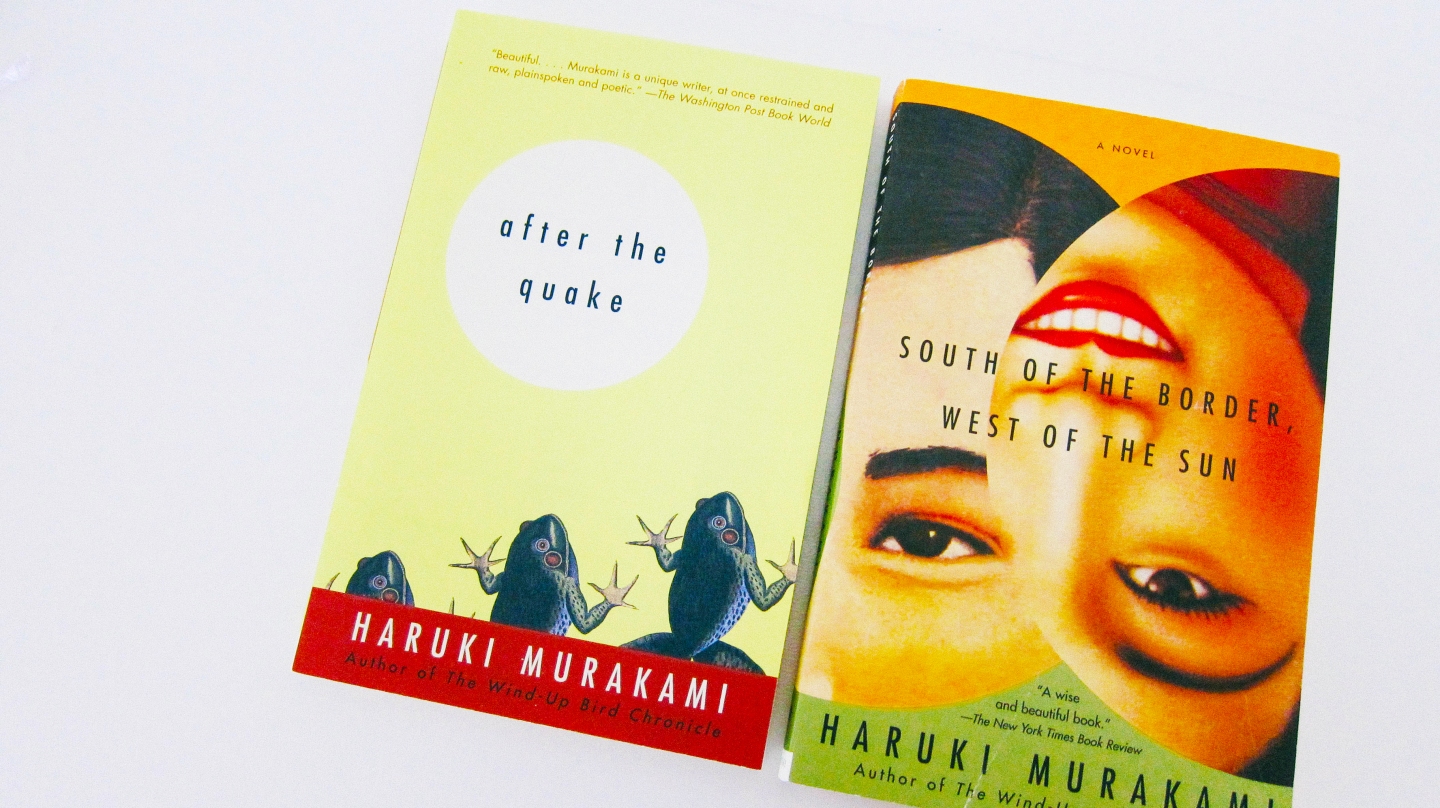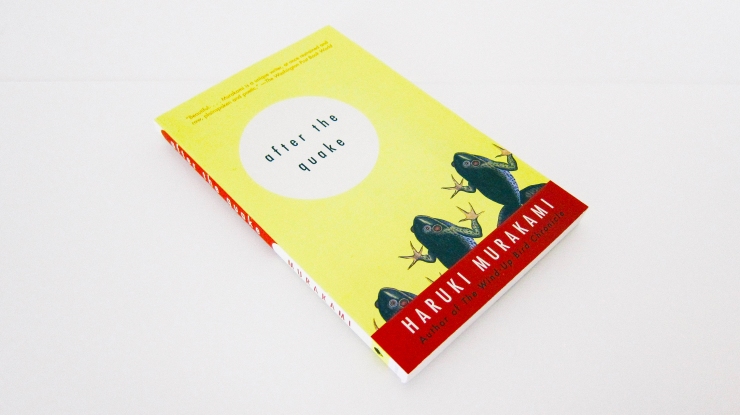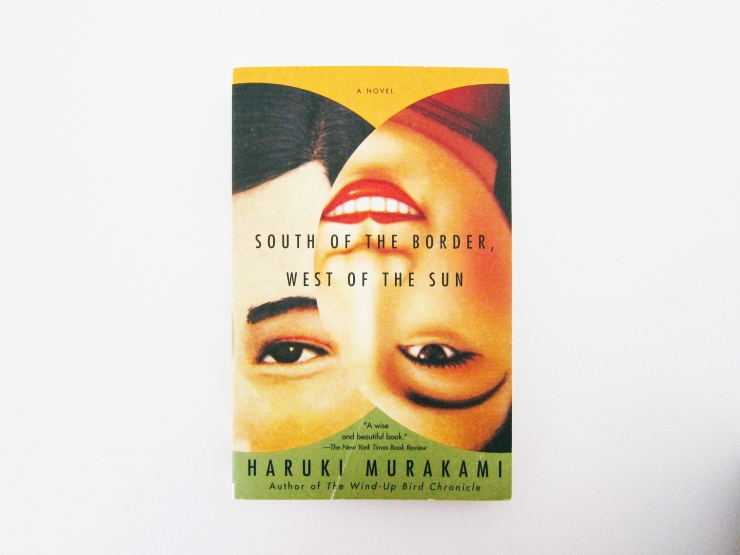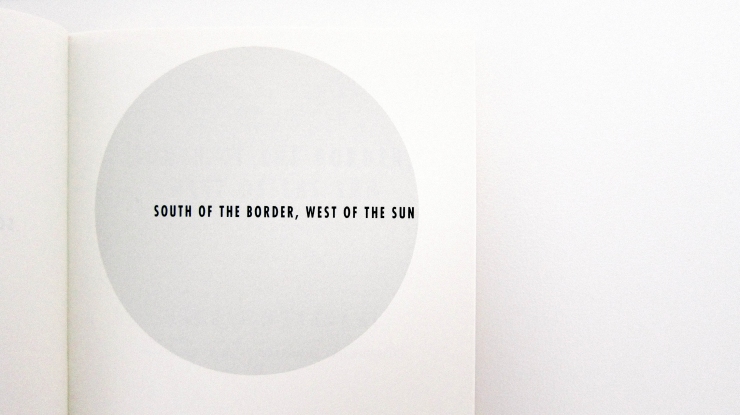Recently, I’ve started a new internship, so my days have been cut short of reading time. As a remedy, I’ve taken advantage of my insanely long commute to read, and so, here are the few books I’ve managed to complete this month:
- The Curious Incident of the Dog in the Night-time by Mark Haddon
- after the quake by Haruki Murakami
- A Tale of Two Cities by Charles Dickens
- South of the Border, West of the Sun by Haruki Murakami
The Curious Incident of the Dog in the Night-time
Premise: When Christopher John Francis Boone sets out to solve the mystery of who killed his neighbour’s dog, he ends up discovering something more that turns his world upside down.
Review: In this book, Haddon writes from the perspective of an autistic fifteen year old boy. Through a deadpan narrative style, we are able to see exactly how the cogs in Christopher’s extremely logical and emotionally detached mind run. Christopher narrates with a meticulous attention to detail and logic, while displaying an aversion to emotional and subjective areas. The story is structured into chapters that go by prime numbers, as these are Christopher’s favourite types of numbers. The inclusion of maps, maths puzzles, and diagrams provides readers with further visual insight into Christopher’s thought process.
Although Haddon’s narrative technique is effective, the plot peters out after Christopher solves the mystery by the middle of the book. The ending is quite underwhelming in that the story just ends without a sense of closure, but I suppose it’s a measure of reality. I would say it’s a good, solid read, but not particularly a standout book for me.
This is the Vintage Children’s Classic edition, with vibrantly illustrated covers and matching spines. Included in the back pages are pieces of supplementary information, such as quizzes, interview excerpts, and facts about Asperger’s Syndrome.
after the quake
Premise: A collection of six short stories set in the time of the 1995 Kobe earthquake.
Review: If you’re familiar with Murakami, you should be able to recognise the recurring themes that can be found in many of his works. after the quake is no exception to this rule. In this slim volume, we are given six short stories that vastly differ in characters and topics, but are all connected by a common linkage to the 1995 Kobe earthquake. The linkage is very subtle, but the effect is quite clear–the earthquake unsettles all things and represents the fragility of all that we thought to be stable and rooted to the ground. I enjoyed reading this collection of stories very much, as Murakami has an exceptional talent for writing about the human condition, and this is especially effective against the backdrop of a natural disaster. Overall a very enjoyable read, although there are none that strike me as particularly remarkable.
A Tale of Two Cities
Premise: Set in the late 18th century during the French Revolution, this is the tale of a former aristocrat who is arrested and sentenced to death for a crime he did not commit.
Review: A Tale of Two Cities is my first Dickens novel. As the plot is very complex, Dickens takes his time setting up the stage and introducing his cast of characters. Don’t be disheartened by the first few chapters, because eventually, everything falls into place as you progress further along. The pace picks up as Dickens writes in a love triangle complete with unrequited love and heartbreaking self-sacrifice; there are even doppelgangers, talks of ghosts, and digging up of graves.
I appreciated Dickens’s ability to criticise both the excesses of the revolutionaries while bringing to light the oppression of the peasants at the same time. Dickens has you sympathising for the peasants in one moment, and in the next, he has you appalled at their fervent thirst for blood and mass beheading of aristocrats.
Although Dickens excels in crafting a masterfully intricate plot, some of the characters were slightly underdeveloped. Lucie Manette, in particular, lacked depth and was overly angelic. This shortcoming does not detract much from the book, and I thoroughly enjoyed reading this tale.
A wonderful fact to reflect upon, that every human creature is constituted to be that profound secret and mystery to every other.
South of the Border, West of the Sun
Premise: Reaching his thirties, Hajime has successfully transitioned from an unhappy, isolated textbook editor to a married father of two and prosperous owner of two upscale jazz bars. However, the reappearance of his childhood best friend Shimamoto, to whom he is attracted, threatens to pull him away.
Review: Often compared to the hugely popular Norwegian Wood, South of the Border, West of the Sun lacks the conspicuous magical realism and fantastical elements that can usually be found in Murakami’s other works. However, like many of Murakami’s main characters, the protagonist is an ordinary man who often waits around for things to happen to him. Specifically, Hajime is not a man of action; he spends his time drifting through life, longing for the things he wants but can’t have (Shimamoto) and not fully addressing the mistakes of his past.
While not having the most likeable character, I wonder if Murakami intended to replicate the theme of the book (“Things that have form will all disappear. But certain feelings stay with us forever.”) in the physical structure of the book itself; the emotion that the book bestows on the reader is one that lasts. Then again, all of Murakami’s works have had that effect on me, as I associate all his books with a certain atmospheric mood I can only get from reading his stories.
I also wonder if Shimamoto’s reappearance is only a figment of the imagination. Perhaps, the theme of the book could apply here as well, in that Shimamoto’s form was no longer there, but the emotion she was able to consistently draw from Hajime lingered well into his middle-aged years.
Things that have form will all disappear. But certain feelings stay with us forever.















your photos are always so so pretty! I love them
LikeLiked by 1 person
Thank you, Cat! I’m glad you enjoy them. 🙂
LikeLiked by 1 person
Great post! If you’re interested in a review about The Strange Library, follow my site. Thanks!
LikeLike
I like the fact that you always take (great) pics of your books!!
Being a freak of beautiful editions,I enjoy them all. 🙂
And just how many books from Murakami have you read? I’ve only read one short story by him,but have been meaning to get into his other books!
LikeLiked by 1 person
Thank you, I really appreciate your comments! 🙂
I have read 8 of Murakami’s works already, and I am actually intending to make my way through his entire bibliography this year! Of the ones I have read, my favourites are Norwegian Wood and Kafka on the Shore. The Wind-Up Bird Chronicle is one that I find myself often thinking back upon too…
You should definitely check out more of Murakami, although I don’t recommend reading him in big dosages.
LikeLike
Great post. Have read two of these, and though I’ve read Murakami but not the two you mention. Nice descriptions.
LikeLiked by 1 person